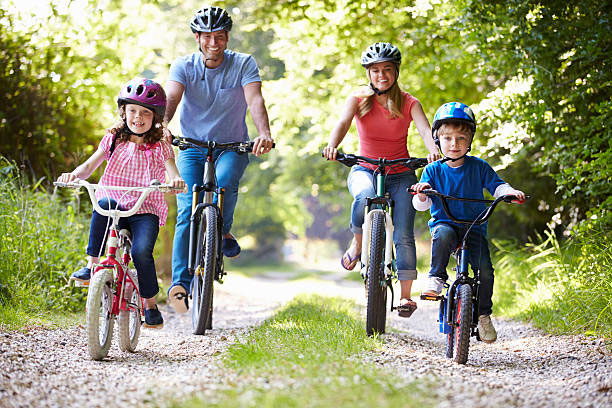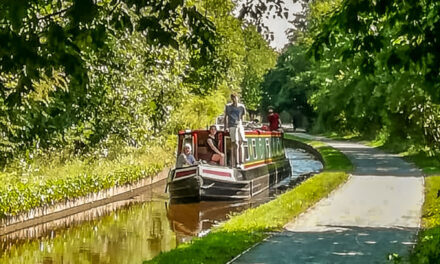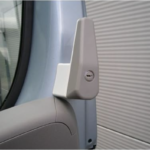Table of Contents
- 1 Introduction
- 2 The Importance of Cycling Etiquette
- 3 Understanding the Right of Way
- 4 Navigating Cycling Lanes
- 5 Helmet Requirement
- 6 Bike Maintenance
- 7 Reflectors and Lights
- 8 Nighttime and Low Visibility
- 9 Cycling Under the Influence
- 10 Sharing Paths with Pedestrians
- 11 Parking Your Bicycle
- 12 Secure Locking
- 13 Conclusion
- 14 EMERGENCY NUMBERS IN FRANCE
Introduction
If you’re planning to explore the picturesque landscapes of France on two wheels, understanding the cycle rules is essential to ensure a safe and enjoyable journey. France offers a cyclist’s paradise with its charming countryside, quaint villages, and bustling cities.
This guide will delve into the key regulations and etiquette cyclists need to know before embarking on their pedal-powered adventure through this captivating country.
The Importance of Cycling Etiquette
Respecting local customs and fellow cyclists is paramount. Always adhere to traffic rules, give way when necessary, and maintain a courteous attitude towards pedestrians and motorists.
Understanding the Right of Way
Cyclists in France generally have the right of way when on dedicated cycling paths. However, at intersections, give way to vehicles already in the roundabout or crossing your path.
Interactions with Motorists
Maintain a safe distance from vehicles, use hand signals to indicate turns, and make eye contact with drivers to ensure they know your presence.
France boasts an extensive network of cycling lanes, indicated by blue signs with white bicycles. Stick to these lanes when available, and always ride in the same direction as traffic.
Helmet Requirement
One of the most significant regulations pertains to helmet usage. Since March 2017, children under 12 must wear helmets while cycling. This applies whether the child is riding their own bike or acting as a passenger on a larger one. Adults accompanying an offending child could face a default fine of €135, ranging from €90 to €375 based on the circumstances.
Bike Maintenance
All cyclists, regardless of age, are responsible for ensuring their bicycles are in good working condition, particularly when cycling on roads or lanes shared with motor vehicles. This includes having functional brakes on both wheels, properly inflated tires with sufficient tread, a secure and comfortable saddle, and tightened bolts on components such as wheels and handlebars.
Reflectors and Lights
Bicycles must have reflective elements such as stickers, panels, or lights. A red-coloured light or reflective label must be present at the rear, while orange reflectors should be affixed to the pedals. To enhance visibility, these lights and reflectors must be visible from behind and on the sides. Additionally, bikes should be equipped with a horn or bell that can be heard from a distance of at least 50 meters. Failure to meet these requirements can result in fines of €11 per bike, which can escalate to €33 if not paid within 30 days.
Nighttime and Low Visibility
A cyclist should take special precautions when cycling at night or when visibility is poor. Bicycles must have a solid red light at the rear and a white or yellow lamp at the front. Furthermore, riders must always wear a reflective tabard during nighttime or low visibility conditions. Non-compliance with these regulations could lead to an additional fine ranging from €22 to €75.
Cycling Under the Influence
France has strict laws against cycling under the influence of alcohol or drugs. Stay sober to ensure your safety and the safety of others.
Sharing Paths with Pedestrians
When sharing paths with pedestrians, give them ample space and reduce your speed. Use your bell or call out to alert them to your presence.
Parking Your Bicycle
Use designated parking areas or racks to avoid obstructing sidewalks or pedestrian paths when parking your bicycle.
Secure Locking
When securing your bicycle in a town or village, using two different types of locks is recommended. A sturdy “D” lock should be used to secure the frame, while another lock can be looped through the wheels for added protection.
By adhering to these regulations and ensuring your bicycle is in compliance, you can enjoy a safe and fulfilling cycling experience in the captivating landscapes of France. Remember, respecting local rules enhances your safety and contributes to a positive cycling culture in this beautiful country.
Conclusion
Cycling through France provides a unique opportunity to immerse yourself in its beauty and culture. By understanding and following the cycle rules, you’ll embark on a memorable journey that combines adventure, exploration, and a genuine connection with this enchanting country.
Is cycling popular in France?
Cycling is incredibly popular in France, with a well-developed infrastructure and a strong cycling culture.
Can I rent a bicycle in France?
Yes, bicycle rentals are widely available in major cities and tourist destinations.
Are cycling lanes safe for beginners?
Many cycling lanes are well-marked and segregated from traffic, making them suitable for cyclists of all skill levels.
What's the best time of year to cycle in France?
Spring and early autumn are ideal, offering pleasant weather and fewer tourists.
Are there guided cycling tours in France?
Absolutely, numerous guided tours cater to different interests and skill levels.
EMERGENCY NUMBERS IN FRANCE
18: Emergencies: This number connects to the fire brigade (Sapeurs Pompiers), but they also deal with medical emergencies and should be the first port of call in life-threatening situations
15: Samu (for other urgent medical call-outs)
17: Police / Gendarmes
112: Universal European Emergency Services number – works from all phones, including mobiles
114: Emergency calls (hearing assisted)
115: Emergency Shelter
119: Reporting child abuse
196: Sea and lake rescue
197: Terror/kidnapping hotline
01 40 05 48 48: Anti-poison centre
British Embassy (Paris) 01 44 51 31 00 UK passport advice + 44 (0) 300 222 0000















